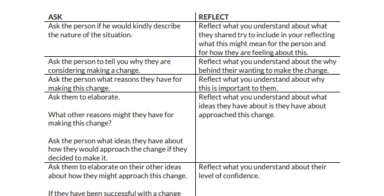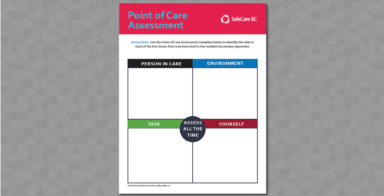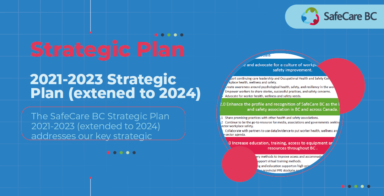Resources & Tools
Resources and Tools
View All
This risk assessment audit tool includes a template for long-term care, home care and community health support, and non-clinical areas.
Files Attached
In long-term care it is increasingly apparent that who is on shift is just as important as how many staff are on shift. Quality care is difficult to achieve when we do not routinely engage with one another in a positive, or civil, manner.
View ToolkitTraining & Education
Training and Education
View All
Guidelines & Regulations
Guidelines and Regulations
View All
WorkSafeBC’s healthcare and social services planned inspection initiative focuses on high-risk activities in the workplace that lead to serious injuries and time-loss claims.
View News StoryNews Story
WorkSafeBC wants your feedback | Proposed changes to compensation calculations
January 24, 2024
WorkSafeBC is releasing a discussion paper with proposed amendments to the Current Rehabilitation Services and Claims Manual that guide wage rate decisions related to short-term and long-term disability compensation. Recommended amendments include: These changes may affect your claims costs. Click here to view the proposed changes and offer feedback to WorkSafeBC – The deadline is 4:30 p.m. on Friday, […]
View News StoryGuidelines and Regulations
Regulatory News










